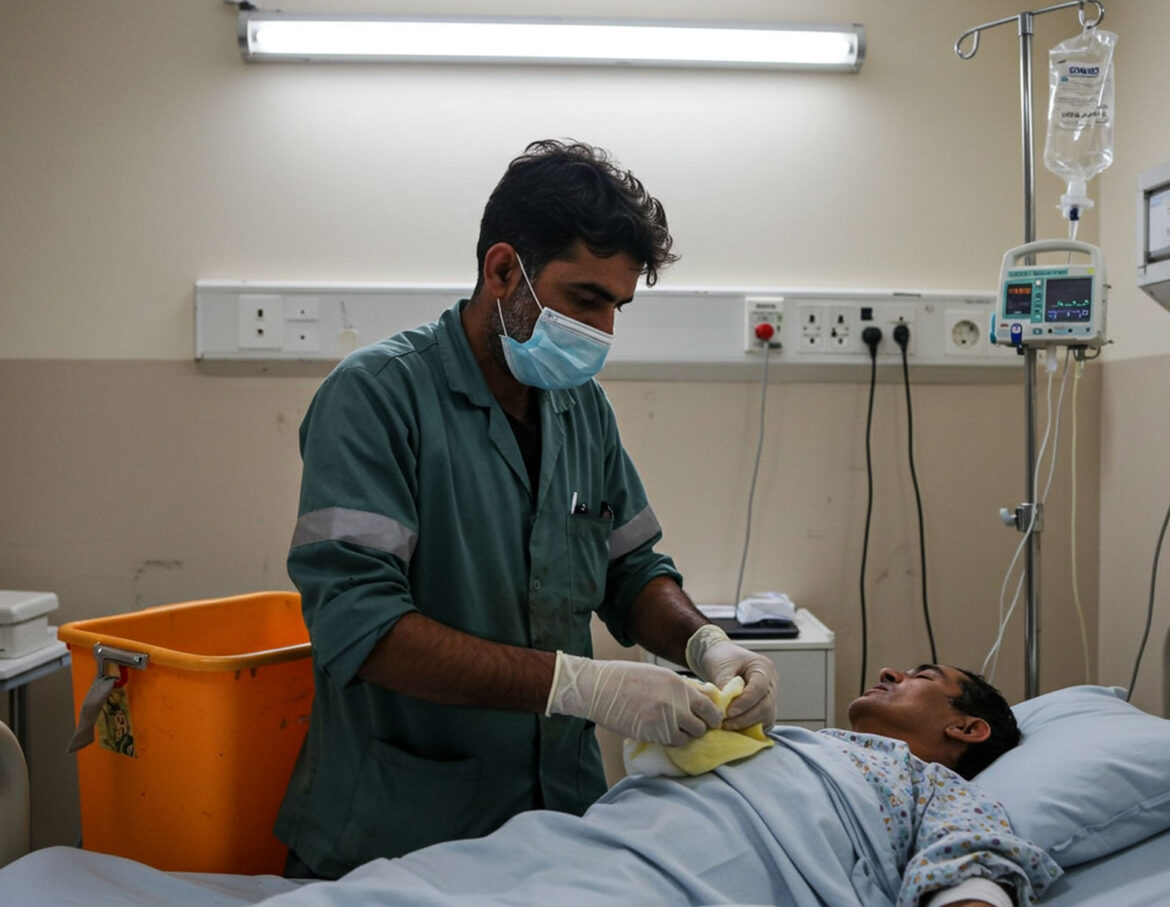A new video has emerged online showing a sanitation worker from the Rawalpindi Waste Management Company (RWMC) attending to a minor patient in the emergency ward of Taxila Tehsil Headquarters (THQ) Hospital. The footage, recorded by an attendant, has drawn widespread public condemnation and reignited debates about the deteriorating state of public healthcare in Pakistan.
This is not the first incident of its kind. In July 2024, another video surfaced showing a sanitation worker performing a medical procedure on a teenage road accident victim in the same hospital. Despite promises of action at the time, the issue remains unresolved.
Health Authorities Deny Allegations
When approached for comment, District Health Authority CEO Dr. Asif Arbab Niazi denied that the sanitation worker carried out any medical procedures, stating that he was merely assisting medical staff.
Deputy District Health Officer Dr. Shahzad Rasool echoed this claim, saying the worker was helping with cannulation. However, Dr. Rasool failed to explain why the worker was not in RWMC uniform or why a sanitation worker—potentially exposed to germs—was allowed to assist in patient care.
Public Anger and Calls for Accountability
The video has sparked outrage on social media, with citizens criticizing the lack of oversight in public sector hospitals, particularly in rural areas. Critics argue that such incidents highlight systemic issues in Pakistan’s healthcare system, including staff shortages, lack of proper training, and negligence by authorities.
Sources within the health department have alleged that previous inquiries into similar incidents have lacked transparency. In the case of the July 2024 incident, a probe committee was formed but has yet to deliver any conclusive findings. Concerns were raised over the impartiality of the committee, as it consisted of doctors from the same hospital where the incident occurred.
Demands for Impartial Probe
Following the latest incident, citizens have called on health authorities to conduct a transparent and impartial investigation. Many have also questioned why similar incidents keep recurring without significant corrective measures.
This episode underscores the urgent need for reforms in public health facilities, emphasizing improved oversight, adequate training for staff, and the strict enforcement of protocols to ensure patient safety.



